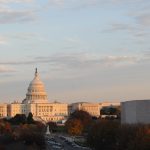 Audible has now filed its response to the publishers’ request for a preliminary injunction—twice. It filed the exact same brief to argue that it shouldn’t be preliminarily enjoined (Dkt. 34) and to argue that the complaint should be dismissed for failure to state a claim (Dkt. Read more
Audible has now filed its response to the publishers’ request for a preliminary injunction—twice. It filed the exact same brief to argue that it shouldn’t be preliminarily enjoined (Dkt. 34) and to argue that the complaint should be dismissed for failure to state a claim (Dkt. Read more
Tag: fair use
Audible’s Planned Caption Service is Not Fair Use
 Late last month, a group of publishers filed a complaint against Audible in the Southern District of New York asking the court to enjoin the audiobook distributor’s launch of a new audio-to-text transcription service. Although Audible has yet to file a response, a statement from the company—a subsidiary of Amazon since 2008—hints at a fair use defense based on the service’s supposed educational purpose. Read more
Late last month, a group of publishers filed a complaint against Audible in the Southern District of New York asking the court to enjoin the audiobook distributor’s launch of a new audio-to-text transcription service. Although Audible has yet to file a response, a statement from the company—a subsidiary of Amazon since 2008—hints at a fair use defense based on the service’s supposed educational purpose. Read more
Arts & Entertainment Advocacy Clinic Students File Amicus Brief in Brammer v. Violent Hues
 By Rachelle Mortimer & Grant Ossler*
By Rachelle Mortimer & Grant Ossler*
The Arts & Entertainment Advocacy Clinic at Antonin Scalia Law School recently filed an amicus brief in the Brammer v. Violent Hues case that is on appeal in the Fourth Circuit. The Clinic provides a unique opportunity for students interested in intellectual property and entertainment law. Read more
CPIP’s Sandra Aistars & Scalia Law Alumnae Urge Federal Circuit to Protect Creators and Rein In Fair Use in Oracle v. Google
 On February 17, 2017, CPIP Senior Scholar Sandra Aistars filed an amicus brief in Oracle v. Google, a copyright case currently before the Federal Circuit. Prof. Aistars worked in conjunction with Scalia Law alumnae Antigone Peyton and Jennifer Aktins of Cloudigy Law and third-year law student Rebecca Cusey to file the brief on behalf of 13 intellectual property scholars, including CPIP’s Matthew Barblan, Devlin Hartline, Sean O’Connor, Eric Priest, and Mark Schultz. Read more
On February 17, 2017, CPIP Senior Scholar Sandra Aistars filed an amicus brief in Oracle v. Google, a copyright case currently before the Federal Circuit. Prof. Aistars worked in conjunction with Scalia Law alumnae Antigone Peyton and Jennifer Aktins of Cloudigy Law and third-year law student Rebecca Cusey to file the brief on behalf of 13 intellectual property scholars, including CPIP’s Matthew Barblan, Devlin Hartline, Sean O’Connor, Eric Priest, and Mark Schultz. Read more
Shaping Fair Use to Promote Fair Markets
 How does fair use policy in copyright law affect markets for the production and distribution of creative works? As we come to the end of Fair Use Week, it’s a good time to highlight a report by the Phoenix Center for Advanced Legal and Economic Public Policy Studies, titled “Fair Use in the Digital Age,” that offers interesting insights into how we can optimize fair use to promote fair markets. Read more
How does fair use policy in copyright law affect markets for the production and distribution of creative works? As we come to the end of Fair Use Week, it’s a good time to highlight a report by the Phoenix Center for Advanced Legal and Economic Public Policy Studies, titled “Fair Use in the Digital Age,” that offers interesting insights into how we can optimize fair use to promote fair markets. Read more
Oracle v. Google: Expansive Fair Use Harms Creators
The following post comes from Rebecca Cusey, a third-year law student at Antonin Scalia Law School, George Mason University, and a movie critic at The Federalist.
 By Rebecca Cusey
By Rebecca Cusey
The fair use doctrine has expanded far beyond its purpose, according to an amicus brief filed this past Friday on behalf of 13 law professors in Oracle v. Read more
Second Circuit Brings Some Sanity Back to Transformative Fair Use
 The Second Circuit handed down an opinion in TCA Television v. McCollum earlier this week holding that a play’s inclusion of Abbott and Costello’s famous “Who’s on First?” routine was not transformative fair use. Given how expansive transformativeness has become lately, especially in the Second Circuit, the opinion is somewhat surprising. Read more
The Second Circuit handed down an opinion in TCA Television v. McCollum earlier this week holding that a play’s inclusion of Abbott and Costello’s famous “Who’s on First?” routine was not transformative fair use. Given how expansive transformativeness has become lately, especially in the Second Circuit, the opinion is somewhat surprising. Read more
Radiohead Video Makes Unauthorized Use of Fictional Characters
Cross-posted from the Mister Copyright blog.
Last month, Radiohead released their ninth studio album, A Moon Shaped Pool, after a five-year hiatus from recording. In true Radiohead fashion, the album’s release was preceded by a unique succession of mysterious social media postings, teaser artwork and music videos for the singles Burn the Witch and Daydreaming. Read more
Attacking the Notice-and-Staydown Straw Man
Ever since the U.S. Copyright Office announced its study of the DMCA last December, the notice-and-staydown issue has become a particularly hot topic. Critics of notice-and-staydown have turned up the volume, repeating the same vague assertions about freedom, censorship, innovation, and creativity that routinely pop up whenever someone proposes practical solutions to curb online infringement. Read more
Ninth Circuit Gets Fair Use Wrong to the Detriment of Creators
The Ninth Circuit’s opinion in Lenz v. Universal is out, and it’s a doozy. The main issue in the case is whether a rightholder has to consider fair use before sending a DMCA takedown notice. Section 512 requires the sender to state that she “has a good faith belief that use of the material in the manner complained of is not authorized by the copyright owner, its agent, or the law.” Read more

